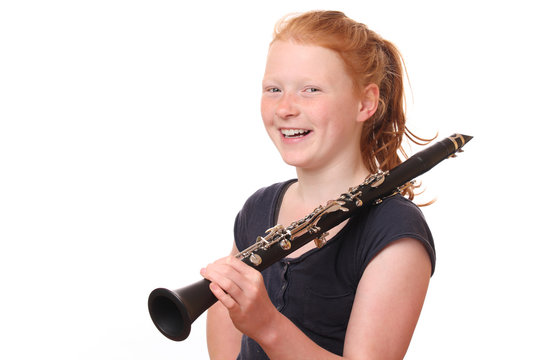Samantha had always struggled to fit in. The other kids in her third-grade class seemed to have no trouble making friends, but Samantha felt like an outsider. To make matters worse, she was struggling academically, especially in math and reading. She dreaded going to school every day, but she couldn’t bear the thought of disappointing her parents.
One day, Samantha’s teacher announced that the school was starting a band program. The program was open to all students, and Samantha thought it might be worth a try. She had always loved music, but she had never had the opportunity to learn an instrument.
Samantha chose the clarinet, and from the first lesson, she was hooked. She loved the sound of the instrument, and she found that she had a natural talent for it. At first, she was nervous about playing in front of others, but her band teacher, Mrs. Johnson, was incredibly supportive. She encouraged Samantha to practice and gave her positive feedback.
As Samantha’s confidence grew, she began to come out of her shell. She made friends with other students in the band, and she started to feel like she belonged. She also found that playing the clarinet helped her with her math and reading skills. The notes and rhythms helped her to understand math concepts like fractions, and the sheet music helped her to improve her reading comprehension.
Samantha’s parents noticed a change in her, too. She seemed happier and more confident than she had in a long time. They were amazed at how quickly she had taken to the clarinet and how much progress she had made in such a short time.
By the end of the school year, Samantha was a different person. She had gone from feeling socially isolated and academically below grade level to being a confident, talented musician. She had found a place where she belonged, and she had discovered a talent she never knew she had. She knew that she had the school band program to thank for all of it.
Participating in a quality music program can have a significant positive impact on a child’s social and academic life in school. Here are some ways in which this can happen:
- Social development: Music programs often involve working in groups or ensembles, which requires communication, cooperation, and collaboration. As children participate in these activities, they learn valuable social skills such as teamwork, listening, and compromise. These skills are not only important in music but also in other areas of life, such as academic and personal relationships.
- Self-confidence: Learning an instrument or performing in front of an audience can be a challenging experience, but with practice, children can build their skills and confidence. Participating in a quality music program can help children gain a sense of accomplishment and develop a positive self-image. This, in turn, can help them feel more confident in other areas of their lives, such as academic and social settings.
- Academic achievement: Studies have shown that children who participate in music programs tend to have better academic performance than those who do not. Learning music involves developing skills such as reading, math, and spatial reasoning. Moreover, the discipline required to learn an instrument or perform in an ensemble can help children develop study habits that can translate to other academic subjects.
- Creativity: Music is a form of creative expression, and participating in a quality music program can help children develop their creativity. The opportunity to write their own music, improvise, and interpret different styles of music can help them think outside the box and find new ways to express themselves.
In summary, a quality music program can positively impact a child’s social and academic life in school by promoting social development, self-confidence, academic achievement, and creativity. These benefits can have long-lasting effects on their personal and professional development.
